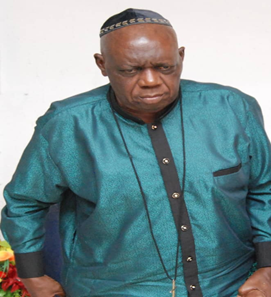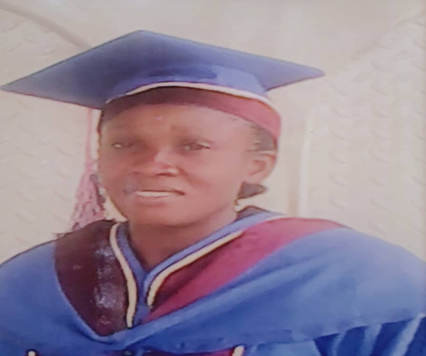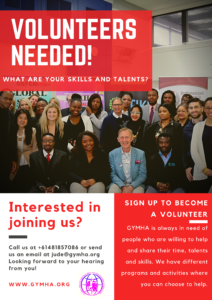GYMHA MEMBER NEWSLETTER NOVEMBER, 2021 EDITION

Dear Esteemed Reader,
It is with great pleasure that we welcome you to read our November newsletter. This month’s edition is filled with great information for your knowledge. Our desire is that we are able to equip you with skills and knowledge for your mental health.
Happy reading!
ANNOUNCING OUR NEW BOARD MEMBERS

“The Global youth mental health awareness (GYMHA) Incorporated Vision was developed in response to the growing need to communicate and engage with professionals and the youth of the community, to tackle the issues associated with Youth Mental Health, and the stigma associated with those individuals who may seek aid. We are excited to welcome our new 10 board of directors who will help us accomplish our goal in creating a world where everyone, everywhere, can turn to someone who is able to support their mental health when needed”.
We are really thrilled to have them as a valuable member of GYMHAI family and we anticipate that their skills and experiences will be an asset to GYMHAI.
We look forward to working with all the new board members for the advancement of GYMHAI globally.
Thank you to all our members who attended the AGM and participated in the election. And great thanks to all our outgoing board members for their invaluable contributions over the years.
Our special thanks go to Dr. Dozie for facilitating the election, and Abbey Akinbiyi for her outstanding speech on Board leadership and Human development.
Please, watch out this space in the next edition for more details.
GYMHA ON OPERATION CATCH THEM YOUNG
By Dr. David David

Mental health conditions, which include behavioral and mental health problems e.g. depression, anxiety disorders (including post-traumatic stress disorder), and disruptive behavioral disorders (such as attention deficit hyperactivity disorder, mood disturbances, substance use, suicidal behaviors, and aggressive/disruptive behaviors) are the leading causes of adjustment problems in adolescents and young people worldwide.
Mental health conditions have a significant impact on the development of over a billion youths and their social and economic integration. Nearly one fifth of the global population is comprised of youths aged 14-24 years, with 85-90 percent of this group living in low-income countries. In high-income countries, it is estimated that about 5 percent of the population have a serious mental illness.
On a global level, it is estimated that approximately 20 percent of youth experience a mental health condition each year. Young people are at greater risk of a range of mental health conditions as they transition from childhood to adulthood.
Mental health conditions during adolescence and young adulthood can have a significantly negative impact on the development of safe and healthy relationships with peers, parents, teachers, and romantic partners.
Many mental health conditions negatively affect youths’ ability to successfully form supportive and healthy relationships and manage conflict in relationships, which is particularly disconcerting given that adolescence is a critical time for identity formation and taking on roles, especially with peers. Disruptions in the ability to form and sustain interpersonal relationships can have lasting impacts on youths’ social and emotional functioning.
To rescue the global youth population from mental health destruction, the Global Youth Mental Health Awareness, Australia, GYMHA lunches out ‘Operation Catch Them Young’, aimed at improving the mental health of young people globally through her annual stress management summit revolutions and other youth-targeted mental health programmes.
Defined programmes like GYMHA’s annual stress management summit revolutions have the potential to improve youths’ access to a full range of services. This includes services for youth with mental health conditions, as well as those who struggle with learning disabilities, which often occur in tandem with mental health conditions. For instance, in GYMHA’s just concluded annual stress summit, a number of youths in several countries across the world were taught mental health in a language that they understand.
Youth-focused mental health topics were discussed. There were two master classes where young people were trained in social-emotional learning and positive behavior supports to promote preventive measures on mental health.
To increase your knowledge on mental health issues, Global Youth Mental Health Awareness warmly welcomes you to the amazing GYMHA family. You can join GYMHA as a volunteer; attend health fairs, resource fairs, summits, and more.
Talk to someone about this article and ask them to share it with someone else. Join GYMHA to start a domino effect for awareness on mental health. Don’t be scared to talk about it. You can get more information about the resources and services offered in GYMHA.
Please, visit our website: www.gymha.org
SOUNDS MIND, SPIRIT AND GOOD HEALTH FOR YOUTHS (Our Future Leaders)
By Chaplain Prof. Mike-Jacobs JP, AP, CPC, CCE

The hope of the entire people of the world for a better, peaceful, and more beneficial future rests squarely upon the youths who are considered to be the future leaders.
It is also a known fact that today serves as a preparation for tomorrow or the future. If people’s aspiration for a better, peaceful, and more profitable future must become a reality; the youths must of necessity be prepared today (now) for this future assignment and responsibility of theirs.
I am convinced beyond reasonable doubts that ensuring that youths are of sound mind, spirits, and good health will in no small measure assist them in fulfilling their obligations of giving our world better leading and leadership in the nearest future.
Who are Youths?
Youths are vibrant and energetic human beings of male and female genders between the ages of 16-35 years, in accordance with African youth charter and declaration.
These youths are usually in their productive ages, always willing to venture into things but lack needed experience.
The youths in our world today by current demographic figures available to us, numbered close to 2 billion people, which is between 24-25% of the entire world population.
By this figure, we know we have a huge teaming youth population, who if well directed, can channel their endeavors towards purposeful, profitable, and beneficial ventures for the advancements and betterment of the world.
Vulnerability: The youths are a highly vulnerable group of people, who can easily be misguided to venture into criminal activities that could destroy them and their future.
I wish to commend the visionary leader of GYMHA for considering the teaming youths for sound mind, spirit, and mental health that will make them meet with the world’s expectations of them.
World Foundation for Mental health must also be commended for this year’s World Mental Health celebration and the theme for this year AD2021, which is “Mental health in an Unequal World.”
An Unequal World: Although we have only one known world on the planet earth; this only world presents many inequalities. These inequalities come in the form of:
- Unequal opportunities
- Unequal social status
- Unequal financial and economic status
- Unequal health status
- Unequal literacy and education status, etc.
These inequalities make mental health care profession difficult, yet mandatory for mental health professionals to care for all people in different situations.
Who are Mental Health Providers? Mental health service providers are mental health professionals who offer mental health care to people who are traumatized, victimized, and people with mental health disorders. These mental health service providers may be:
- Mental health counsellors
- Mental health psychologists
- Mental health chaplains
- Mental health nurses
- Mental health doctors.
Mental health professionals are found in various health care professions to help people deal with any mental health challenges and problems they may have due to traumatic events, crisis or other challenges of life that push them off balance. These professionals help others to regain balance in life and resilience after traumatic experiences.
Geographical Spread: Although youths have a global spread, they are more concentrated in developing nations, which are poverty stricken nations of the world. As efforts are being made to make provision of good mind, spirit, and mental health available to them; they should also be empowered economically and financially to enable them take responsibility for their livelihood without depending on political elites who will make use of them for their selfish ends and dump them later.
Government of nations also should provide good governance and government of inclusion, which will make youth restiveness minimal coupled with equitable justice.
Youths are usually ready instrument of violence; to ensure peaceful co-existence and profitable and sustainable development in nations of the world. Youths must be properly guided by older adults.
Email: apcin2016@gmail.com
YOUTH MENTAL HEALTH CHALLENGES FOR STABILITY

Are you able to enjoy life? Do you want to try new things or take risks? Do you feel equipped to go through tough times? If you answered yes to these questions, you’re doing quite well. If you answered no, here are some things you can do right now to recharge and take care of your mental health.
Clean up your thoughts
Are you the type to tell yourself that you’re no good, not good enough or that you don’t deserve to be loved? To stop this onslaught of negative thoughts, quit comparing yourself to others and taking their judgments about you to heart. Instead, make a list of your qualities and develop them. Praise yourself for your efforts, your strengths and your successes, and do the same with those around you. A pat on the back from time to time sure feels good.
Adopt a healthy lifestyle
Do you lack energy? Why not start by eating better? Go with the 80/20 rule: 80% fruit and vegetables for 20% protein. To add some pep to your plate, think about herbs and spices!
Exercise also helps you maintain good physical and mental health. Only 1 in 5 people 18 to 34 years of age get the recommended 150 minutes of physical activity each week. Be active—your body and mind will thank you for it!
When you’re with others, put down your device
Are you tired of talking to people who text and don’t listen to you? Then it’s time to set an example for others. Don’t check your phone or tablet around others unless you have to organize something. If necessary, excuse yourself for a few minutes and then give your friends your full attention.
If you’re getting together for a party, enjoy it. Don’t be afraid to talk about everything and nothing or to suggest some games. Who knows where your friendships and laughter will lead you!
Give your time
Do you question the injustices in this world? What small thing could you do to help change things? Like 69% of young people 15 to 24 years of age, become a member of a group, organization or association. Get involved in a cause or find something to do for your neighbourhood, your friends, your entourage or even a stranger. Taking action to improve the world does the greatest good, because you’re part of the solution! And if you join forces with others, you can work miracles!
Get some rest
Are you tired? Modern life often cuts into precious minutes of sleep. Blue light from the screens you look at prevents the production of melatonin, which tells you when it’s time for bed. Some devices offer blue light filtering settings. The best thing to do, however, is to avoid using a screen an hour before bedtime.
Take up the challenge and you’ll see a difference!
THE WHOLESOME YOUTH
By Chaplain Dr. Joy David SCC, CPC

Introduction:
The world and everything in it is experiencing brokenness, not in terms of sobriety for remorse for a positive change, but being broken in pieces due to the increase of evil and social vices.
Human beings are the worst hit of this condition; there is no one today who does not feel the pain and effect of this broken world. This has made life unbearable, unpleasant, and undesirable for many, thereby leading to more crises, social vices, crimes, suicidal thoughts, and actions, etc.
Due to the effect of this excruciating pain, the coping capacities of many people especially our young ones have gone too low or nonexistent. This has led many of our youths to engage in unwholesome activities (substance/chemical abuse, fraud, kidnapping, robbery, and other social vices) that are detrimental to their wholesome living and holistic lives.
This calls for serious concern.
What is Wholesomeness?
Wholesomeness is the quality of enjoying a sound health of mind and body. Looking at this definition, you will understand that the first task for one is to live a wholesome life which is beneficial and generally (physical, mental, emotional, psychological, social, etc) good for the individual.
In essence, it is to be the person you should be (the authentic you), that is beneficial and good to your very self. It is when you have benefited and enjoyed your life that you will be able to be of benefit to others. In GYMHA, the vision is to assist youths to live their best lives.
There is an old saying that, “You cannot give from an empty cup.” The cup, as your life, has both the internal and the external. The internal consists of the mind, emotion, spirit, and so on, while the external includes the body, social life, and more. Each of them needs to be holistically sane, sound, and healthy to enable you help others who are passing through any kind of difficult phase in life.
I enjoin us to make wholesome living our priority; it is not selfishness, it is self-care (self-compassion). Self-care is very important in living a wholesome life, take serious note of this.
The Wholesome Youths: Who are wholesome youths?
Wholesomeness means:
- To be sound or exhibit soundness in body, mind, and spirit. Note: The mind comprises of your thinking faculty and emotions.
- Having the characteristics of physical and moral wellbeing.
- To be incorrupt, nourishing, invigorated, salubrious, beneficial, etc.
- To be favorably disposed to good morals, positive religions, and prosperity.
Looking at the definition of wholesomeness, wholesome youths are:
- Youths who have worked on their total being (physical, mental, emotional, psychological, spiritual, social, environmental, etc.) to be holistically sound and healthy.
- Youths who exhibit soundness in every aspect of their lives.
- Youths who portray characteristics of physical, mental, social and moral wellbeing in every of their endeavours.
- Youths that cannot be influenced or corrupted. Wholesome youths never give themselves to bad wagons no matter the situation; they remain their authentic selves, even in the midst of appealing temptations. Why? Because they have a dignity to uphold!
- Youths who contribute positively to the total wellbeing of others.
If this is achieved; we’ll have a wonderful world!
In conclusion, our world needs wholesome youths. The world awaits your greatness and manifestation!
Watch out for the next edition, God willing.
Email: uchejoyjp@gmail.com
VOLUNTEER’S INTERNAL TRAINING INVITATION

GYMHA invites you to join her volunteer’s pool and enjoy the FREE Monthly Internal Volunteer’s Training
We’re so excited to share with you the highlight of our last training session
- Communication Mastery – DeepShikha Tripathi, Counselling Psychologist, Life Coach, Founder at Prayas, and GYMHA Training Manager.
- Guest Speaker – Shhreyaa Shetti:
ELITE Woman, India Ambassador -WWO, Women Advocacy & Youth Empowerment, Global Transformation, President National Council, WICCI – Corporate Comm & Advocacy
- Social media strategies – Amadi Vivian Akuyoma, GYMHA Board Member and Volunteers Director
Please, consider joining our volunteer pool today and enjoy all the benefits.
Looking forward to seeing you joining our lovely family!
FACEBOOK LIVE SHOW

The Global Youth Mental Health Awareness (GYMHA) Incorporated, Australia presents another inspiring Facebook live show “Theme: Toxic Relationships”.
Do you want to know the answer to the following questions?
- Who can be in a toxic relationship?
- What are signs and unhealthy behaviors of a toxic relationship?
- How does a toxic relationship impact on one’s physical and mental health?
- In the case of romantic relationships how do people end up in a toxic relationship?
- How toxic relationships affect future relationships?
- Are toxic relationships always bad and can it be fixed?
- How can anyone get out of a toxic relationship?
- What are some strategies that people can use to manage and get heal from toxic relationships?
If yes, click on the link below to get answer to all your questions.
Link: https://youtu.be/5AQLg-Aproo
For more information, please inbox jude@gymha.org
National Mental Health Consumer and Carer Forum (NMHCCF) and the National PHN Mental Health Lived Experience Engagement Network (MHLEEN) partner with Yale University to a run a transformational leadership development program
The NMHCCF and MHLEEN, through their jointly funded Leadership Program, are partnering with the Yale University Program for Recovery and Community Health (PRCH) to support up to 15 emerging leaders with a lived experience of recovery of mental health to participate in the LET(s) LEAD Academy, a transformational leadership development program. Candidates will have personal lived experience of mental health distress and recovery, and are making positive changes in their community or sector, or be interested in transformational change.
The virtual course, facilitated by instructors from PRCH, Department of School of Medicine, Yale and guest facilitators throughout Australia, will run from February 2022 – November 2022. The first phase of the course consists of 10-weekly online seminars that cover concepts such as developing a personal vision, transformational change, appreciative inquiry, strategy, and change management.
In the second phase of the course, participants will be matched with the mentorship of a community leader nationally or internationally according to a self-chosen piece of work contributing to the lived experience sector. It is intended that after course completion, participants will provide lived experience transformational leadership within their organization, and within the mental health Lived Experience (Peer) workforce sector within Australia.
Further information and applications forms are available via the NMHCCF website or here.
Make health and safety a permanent part of your workplace culture
This National Safe Work Month, Safe Work Australia, asked workplaces across the country to make health and safety a permanent part of their workplace culture by continuing to think safe, work safe, and be safe throughout the year. “Throughout the pandemic, we’ve seen just how important work health and safety is. Nearly 70,000 people visited the National Safe Work Month website this year, providing a strong indication of Australian businesses ongoing commitment to health and safety at work,” said Safe Work Australia CEO, Michelle Baxter.
New insights into suicide and self-harm in Australia
Australians collectively lost more than 145,000 years of healthy life in 2019 due to suicide and self-harm, according to a new report by the Australian Institute of Health and Welfare (AIHW). The report, ‘The health impact of suicide and self-inflicted injuries in Australia, 2019, updates and extends data from the Australian Burden of Disease Study 2018 to calculate the combined impact on individuals of dying prematurely from suicide (the fatal burden), and of injury and illness from self-harm (the non-fatal burden). This is measured using Disability-adjusted Life Years (DALY).
GLOBAL NEWS AND IMPORTANT LINKS
Job Vacancies at ORYGEN
- ASSOCIATE LECTURER IN YOUTH MENTAL HEALTH:
APPLY: https://www.orygen.org.au/About/Work-with-Us/Associate-lecturer-in-youth-mental-health-(2)
- Aus Career Coach Job Vacancies
- Dental Assistant / Front Desk Receptionist needed for an established Dental practice located at Templestowe (job description available)
- Employer located in the south-east of Melbourne
- Aged Care and Disability Workers required to attend to provide care to the elderly and disabled (work placements available)
- Work Health & Safety Officers
For more information and application, please inbox Michelle@auscareercoach.com.au or visit: https://www.auscareercoach.com.au/jobs
- Youth Engagement Grants
Apply: https://www.crimeprevention.vic.gov.au/grants/youth-engagement-grants/guidelines-youth-engagement-grants?utm_medium=email&_hsmi=181444511&_hsenc=p2ANqtz-_NFVA3ACAe1aA3fYGOKNV2VBOjeh1S8PflivSBhyDnQ82AgjGQ1e_Z03wOi3W-CIEZplWQQeM0kuvG9EZ4pyM1fJUS7w&utm_content=181444511&utm_source=hs_email
- ORYGEN AND PANDA CALL FOR FOCUS ON MENTAL HEALTH OF YOUNG PARENTS
Read More: https://www.orygen.org.au/About/News-And-Events/2021/Orygen-and-PANDA-call-for-focus-on-mental-health-o
- YOUNG PEOPLE WHO MIGRATE TO AUSTRALIA HAVE SIMILAR FIRST EPISODE PSYCHOSIS OUTCOMES TO OTHER YOUNG PEOPLE
Read More: https://www.orygen.org.au/About/News-And-Events/2021/Young-people-who-migrate-to-Australia-have-similar
- NEW RESOURCE: INTEGRATING TREATMENT FOR YOUNG PEOPLE WITH CO-OCCURRING SUBSTANCE USE AND MENTAL HEALTH ISSUES
Download here: https://www.orygen.org.au/Training/Resources/Alcohol-and-substance-use/Evidence-to-practice/integrating-treatment-for-young-people-with-co-occ
- Two new tobacco cessation medicines added to the list of essential medicines
Download here: https://www.who.int/publications/m/item/who-quitting-toolkit
- Australians looking for support throughout the COVID-19 pandemic can access the Beyond Blue Coronavirus Wellbeing Support Service anytime via telephone at 1800 512 348 or online at www.coronavirus.beyondblue.org.au
- Anyone experiencing distress can seek immediate advice and support through Lifeline (13 11 14), Kids Helpline (1800 55 1800), or the Government’s digital mental health gateway, Head to Health.
- If you are concerned about suicide, living with someone who is considering suicide, or bereaved by suicide, the Suicide Call Back Service is available at 1300 659 467 or www.suicidecallbackservice.org.au
Special thanks to our writers, editors, and all our amazing contributors.
We’d love you to connect with us:
Facebook: https://www.facebook.com/Global-Youth-Mental-Health-Awareness-GYMHA-318074815739705/
Instagram: https://instagram.com/gymha2020?igshid=24c0tna6rbte
Twitter: https://twitter.com/GGymha
Facebook Group: https://www.facebook.com/groups/globalyouth4real
Website:www.globalyouthmentalhealthawareness.org
GYHMA YouTubechannel:https://www.youtube.com/channel/UCQwrExehjRgmYgQcMBkQWUw
For any enquiries, please inbox jude@gymha.org
